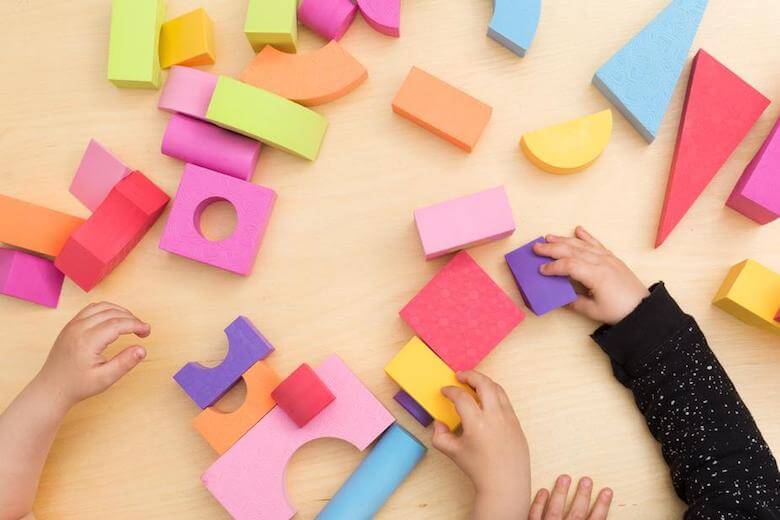
As your little ones grow and interact with the world around them, they will face both accomplishments and challenges every day. By equipping them with problem-solving skills from their early years, children may be better able to face daily challenges with resilience and confidence. Below are four ways you can encourage problem-solving skills in toddlers and young children on a daily basis.
1. Ask preschoolers questions as often as you can, so they learn thinking skills that lead to problem-solving
While young children are naturally curious about the world around them, you as a parent can deepen their curiosity by asking them questions that further their thinking. For example, “why do you think flowers on this side of the garden didn’t grow as tall as on the other side?” or “how could we create our own fort using only these materials?” These types of inquiries for their little minds are great starting points for questions that lead to deeper thinking. By asking questions like these, early learners can learn to investigate, form hypotheses and test their ideas – all of which are the building blocks of problem-solving.
2. Encourage creative thinking in your early learners, so they begin to see more than one answer to various problems
As toddlers and preschoolers begin to investigate the answers to questions or problems they encounter, it is important for them to realize there can be more than one right answer to something. Facilitate their creative thinking by asking questions or presenting them with problems that pose multiple correct answers or solutions.
This task can help young children develop the skill of problem-solving by looking at various perspectives to find multiple possible solutions. While teach children this method of problem-solving, it is important try following your child’s lead. Don’t quickly point out what you think is obvious – it’s ok if they make mistakes! But even more rewarding is watching what they come up with. During their thought process, they may go down a path you never would have thought of!
3. Facilitate as much play-time for young ones as possible
It is well-known that children learn a lot through play (see article linked-to above). So, you don’t have to do this ‘text-book’ style! Play is the most natural way to encourage problem-solving skills in toddlers and young children. By giving young kids plenty of time for free play, they will inevitably create and solve many different problems on their own, or with siblings and friends.
If you would like to set up a playtime that is specifically focused on problem-solving, try giving your little ones some puzzles to put together, or building materials to play with. Not only will they have to try to solve a problem, they will also have to engage in collaboration (if they are playing with you, a friend or sibling). Remember to speak out loud the thought processes you think of while problem-solving with kids. This way they can learn to think along with you.
See related on our blog: 4 reasons to encourage play in early childhood years
4. Model your own problem-solving skills
Teaching children about daily-life setbacks or mildly difficult situations you face is another way to strengthen their own problem-solving skills. And it’s ok if it’s ‘grown up’ stuff you talk to them about (but keep it PG, folks!). For example, “today at work I remember putting my yoghurt in the fridge when I arrived. But when I came back to eat it, it was gone!” The Globe and Mail suggests telling a story about a problem you faced with “colorful language and animated storytelling,” which is a great way to get your little ones interested.
You can also do simple things like talk through a problem you are trying to solve (“hmmm, where did that yoghurt go?”). This way, your young children will be able to observe the problem-solving process first-hand.
Once your early learners acquire basic problem-solving skills down, keep practicing with them!
The ability to problem-solve like a pro definitely doesn’t appear overnight. It is something you’ll want to encourage on a daily basis with young children. By doing so, your little ones will become more familiar with how to face a variety of challenges and ‘hiccups’ in life. If there is only one bike but two kids who want to ride it, ask them what they think the solution might be. If they break their toy airplane, ask if they can come up with materials to repair it with you, or who they can ask for help. As you encourage your little ones to solve their own problems, be sure to verbally take note of the amazing and creative solutions they come up with on their own!
See more on our blog:
- How to find and use teachable moments as an early childhood educator
- The importance of teaching kids decision-making skills in early childhood
- How to teach toddlers and preschoolers to count, and learn their numbers
- How to teach impulse control in early childhood
- How to identify and encourage multiple intelligences in early childhood
